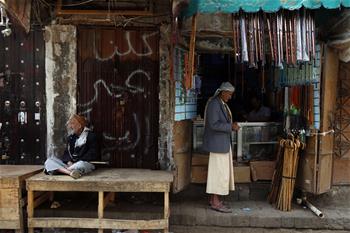BERLIN, Aug. 16 (Xinhua) -- Holger Muench, president of the Federal Criminal Police Office (BKA) said on Friday that "the danger posed by hate messages on the internet is very great."
"Hate crime has acquired a completely different meaning through the possibility of expressing oneself publicly and at the same time largely anonymously on the internet," Muench said in an interview with t-online.de.
He also warned that right-wing extremist crime was no longer only directed against foreigners or political opponents, but "also against people who stand up for diversity or refugee aid."
In June, politicians and experts in Germany were equally alarmed by the politically motivated murder of the local politician Walter Luebcke, who had strongly supported refugees and loudly stood out against anti-refugee voices in Germany.
To combat hate posts on the internet, Muench said, the government and federal states need to agree on how to pursue the issue and "are in intensive talks with the Federal Ministry of the Interior and the states."
Muench demanded that the authorities have the "ability to collect data to be able to assign the IP address if necessary." He described the storage of IP addresses as a "minimum requirement for really being able to prosecute crimes on the internet."
Although data protection groups have criticized the storage of data, Munch argued that "the internet is a public space in which a citizens have to act under the same legislation, jurisprudence and police action."
With regard to hate posts on large social networks such as Facebook, Muench stressed that a solution had to be found on a European level but also made clear that a discussion in Germany is needed immediately.
The latest official numbers show that crime statistics in Germany are at their lowest level for many years. However, Muench acknowledged that surveys showed that the feeling of security in Germany had decreased.
In April, the BKA published its latest survey on victimization, which asked German citizens about the actual burden of crime in contrast to their perceived safety. The survey found that Germany still had a high level of safety, perceived or factual, "although the feeling of insecurity has increased slightly."
Following a large intake of migrants in recent years, Muench admitted that "the situation with violent crime is a little different." Although the number of cases stagnates, he warned that "a small group of immigrants from certain countries of origin is significantly more conspicuous. We must not only take note of this development, but also take it very seriously and draw conclusions from it."













